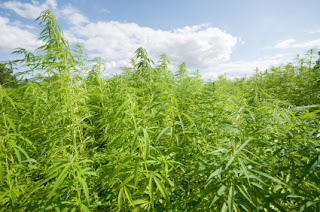Alex Pietrowski, Staff Writer
Waking Times
Researchers at Virginia Tech have developed a new process that extracts large quantities of hydrogen gas from plants in a renewable and eco-friendly way, offering us another potential alternative to ending our dependence on fossil fuels.
After 7 years of research, Y.H. Percival Zhang, an associate professor at the College of Agriculture and Life Sciences and the College of Engineering at Virginia Tech, and his team have developed a new method of using customized enzymes to produce high quantities of hydrogen out of xylose, a simple sugar present in plants.
Zhang and his team have succeeded in using xylose, the most abundant simple plant sugar, to produce a large quantity of hydrogen that previously was attainable only in theory. Zhang’s method can be performed using any source of biomass.Hydrogen fuel has the potential to dramatically revolutionize the automobile market and reduce our dependence on fossil fuels. Vehicle manufacturers are already developing cars that run on hydrogen fuel cells, which do not produce as many pollutants as regular gasoline cars. Currently in the US, the transportation sector produces 82% of total CO2 emissions in the country.
This new environmentally friendly method of producing hydrogen utilizes renewable natural resources, releases almost no zero greenhouse gasses, and does not require costly or heavy metals. Previous methods to produce hydrogen are expensive and create greenhouse gases. [Science Daily]
Zhang’s method of hydrogen production will need to find its way into commercial markets, which could happen in about 3 years, before any significant impact on the alternative energy market is possible. Even though Zhang’s process addresses the previous obstacles to hydrogen gas production, including high process costs, greenhouse gas emissions, and low quality of the end product, large investment in technology development and infrastructure would still be necessary to transition to hydrogen fuel cars.
EIA estimates that U.S. gasoline and diesel fuel consumption for transportation in 2011 resulted in the emission of about 1,089 and 430 million metric tons of CO2 respectively, for a total of 1,519 million metric tons of CO2. This total was equivalent to 82% of total CO2 emissions by the U.S. transportation sector and 28% of total U.S. energy-related CO2 emissions.
Source: U.S. Energy Information Administration, March 28, 2012
“The potential for profit and environmental benefits are why so many automobile, oil, and energy companies are working on hydrogen fuel cell vehicles as the transportation of the future,” Zhang said. “Many people believe we will enter the hydrogen economy soon, with a market capacity of at least $1 trillion in the United States alone.”A future where renewable energy replaces energy production using fossil fuels is inevitable. Some have gone as far as to illustrate that we have the potential to make this shift in less than 20 years, for example, Mark Z. Jacobson of Stanford University and Mark A. Delucchi of the University of California, published a study that shows it is possible to power New York State using only renewable sources by 2030.
“It really doesn’t make sense to use non-renewable natural resources to produce hydrogen,” Zhang said. “We think this discovery is a game-changer in the world of alternative energy.” [Science Daily]
Nevertheless, governments’ support of traditional energy production via fossil fuel subsidies, which amount to $1.9 trillion per year, as reported by the International Monetary Fund, is one of the main obstacles to the growth of alternative energy sources. The IMF estimates that $480 billion of the total is comprised of direct subsidies, which have the goal of making petroleum products more affordable.
A fossil fuel subsidy is any government action that lowers the cost of fossil fuel energy production, raises the price received by energy producers or lowers the price paid by energy consumers. There are a lot of activities under this simple definition—tax breaks and giveaways, but also loans at favorable rates, price controls, purchase requirements and a whole lot of other things. [Oil Change International]The remaining $1.4 trillion are comprised of “externalities”: “the effects of energy consumption on global warming; on public health through the adverse effects on local pollution; on traffic congestion and accidents; and on road damage.” (IMF) Current energy policies are established in such a way that fossil fuel companies do not pay for any of these “externalities”, and thus leaving these industry costs to be indirectly subsidized by governments.
Here are some more statistics about the energy subsidies in the US:
“…between 1994 and 2009 the U.S. oil and gas industries received a cumulative $446.96 billion in subsidies, compared to just $5.93 billion given to renewables in those years. (The nuclear industry, by the way. received $185 billion in federal subsidies between 1947 and 1999.)”With such policies in place, heavily influenced by large multi-billion dollar companies with strong government ties, is a rapid change towards renewable energy even possible? Are we ready to challenge our policies to shift financial support from harmful and damaging energy production to renewable technologies, and change our own behaviors to create a cohesive movement towards a cleaner and safer planet?
Source: Forbes
If breakthroughs in technology can offer salient alternatives to the economic stranglehood fossil fuels has on our economy, then we may realize a future of clean energy. One thing is certain, however, without practical alternatives there is no chance of changing the momentum behind extraction based energy toward clean energy.
About the Author
Alex Pietrowski is an artist and writer concerned with preserving good health and the basic freedom to enjoy a healthy lifestyle. He is a staff writer for WakingTimes.com and an avid student of Yoga and life.Sources:
http://www.sciencedaily.com/releases/2013/04/130403104104.htm
http://en.wikipedia.org/wiki/Hydrogen_vehicle
http://www.eia.gov/tools/faqs/faq.cfm?id=23&t=10
http://priceofoil.org/fossil-fuel-subsidies/
http://grist.org/climate-energy/can-we-shift-to-renewable-energy-yes-as-to-how/
http://www.forbes.com/sites/ciocentral/2013/02/14/government-subsidies-silent-killer-of-renewable-energy/
http://www.imf.org/external/np/speeches/2013/032713.htm
This article is offered under Creative Commons license. It’s okay to republish it anywhere as long as attribution bio is included and all links remain intact.





.jpg)












